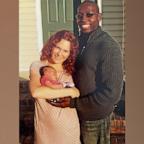Tylenol May Ease Headaches and Heartaches
Dec. 25 -- THURSDAY, Dec. 24 (HealthDay News) -- Acetaminophen -- best known as Tylenol -- is usually taken to relieve physical pain, but a new study suggests that the over-the-counter drug may also help ease the psychological pain of rejection.
Researchers assigned 62 healthy college undergraduate students to one of two groups. One group took 1,000 milligrams of acetaminophen daily, while the others took a placebo. Every evening for three weeks, participants were asked to report to what degree they experienced social pain using the "Hurt Feelings Scale," a measure widely used by psychologists.
Those taking acetaminophen reported fewer hurt feelings and social pain over the course of the experiment, while there was no change in reports of hurt feelings among those taking the placebo.
In a second experiment, 25 healthy students were asked to take either 2,000 milligrams of acetaminophen daily or a placebo. After three weeks, participants played a computer game designed to simulate social rejection. (Participants played a virtual ball-tossing game with two unseen, fictitious players who at first appeared to be sharing the ball but later "rejected" the student by not throwing them the ball.)
Students underwent functional MRI while they were playing. When it became apparent they were being rejected, those who had been taking acetaminophen had reduced neural responses in the dorsal anterior cingulate cortex and anterior insula -- areas of the brain associated with the emotional response to pain -- compared to those on the placebo.
"When you experience something that is socially painful, your body is going to experience it in much the same way as it would experience physical pain," explained study author C. Nathan DeWall, an assistant professor of psychology at the University of Kentucky. "By numbing physical pain, you should numb people to social pain. And that's what we've found."
The researchers theorize that acetaminophen may work because areas of the brain that process physical and social pain overlap, and what works to dull one sort of pain may help dull the other.




